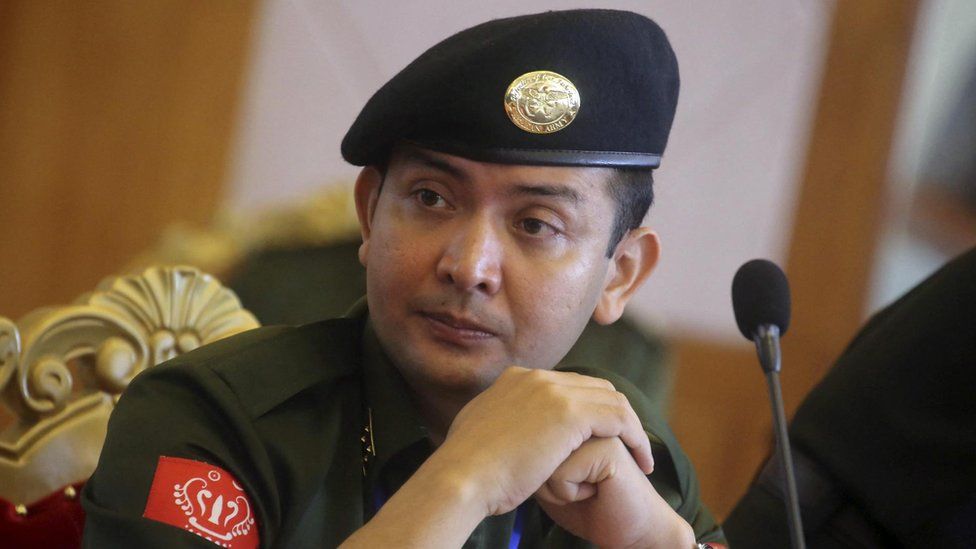
Ethnic insurgents in western Myanmar say they have captured an important town on one of the main routes to India from military forces.
The Arakan Army (AA) – one of three armed groups that launched a major new offensive against the military in October – says it has taken control of Paletwa, in Chin State.
“There is not a single military council camp left in the entire Paletwa area,” the group said on its Telegram channel.
Myanmar’s military has not commented.
Developments in Paletwa – which lies close to Myanmar’s border with India and Bangladesh – will be closely watched by Delhi. The town is part of an ongoing multi-million-dollar development project backed by India that aims to improve connectivity in the remote region.
The AA is one of the newest but best-equipped of Myanmar’s many ethnic armed groups, and has been battling the military – and gaining ground – in Rakhine State, and parts of neighbouring Chin State, for several years. Even before the military grabbed power in February 2021, AA fighters had made significant gains in Rakhine. Two years ago, it claimed to control 60% of the state.
But at the time of the 2021 coup, it was observing a ceasefire, and the army avoided confrontations with it so it could concentrate its efforts on crushing opposition to the coup.
However, last October, the AA announced it was joining the wider struggle against military rule as part of the Brotherhood Alliance, and launched a series of attacks against a military badly overstretched by opposition to its coup across much of the country.
And over the past 11 weeks, the alliance has inflicted a series of humiliating defeats on the military along the Chinese border.
Then last Saturday – on the other side of the country – the AA took control of the last military post in Paletwa township, the hilltop base at Meewa, which back in 2020 it had been unable to take after 42 days of fighting.
With the port of Paletwa on the Kaladan River under its control, the AA now controls road and water transport to the Indian border, and has a logistics base from which it can plan further attacks in Rakhine State.
The loss of any of the main towns in Rakhine to the insurgents would be a devastating blow to the authority of the military. It is reported to be using airstrikes and helicopter gunships to try to prevent the AA from advancing to the town of Kyauktaw, which sits astride the main road linking the Rakhine capital Sittwe with the rest of Myanmar.
It is not clear yet what the AA will do next. It may wish to consolidate the gains it has made and minimise further losses in its ranks. Its avowed goal is some form of independence or autonomy within a federal state, which its leadership now appears to have decided is best achieved under a new, elected government rather than under military rule.
The bigger question now after the fall of Paletwa is whether the junta can restore morale in its own ranks, and persuade its soldiers to keep fighting against opposition which now comes from so many quarters.
